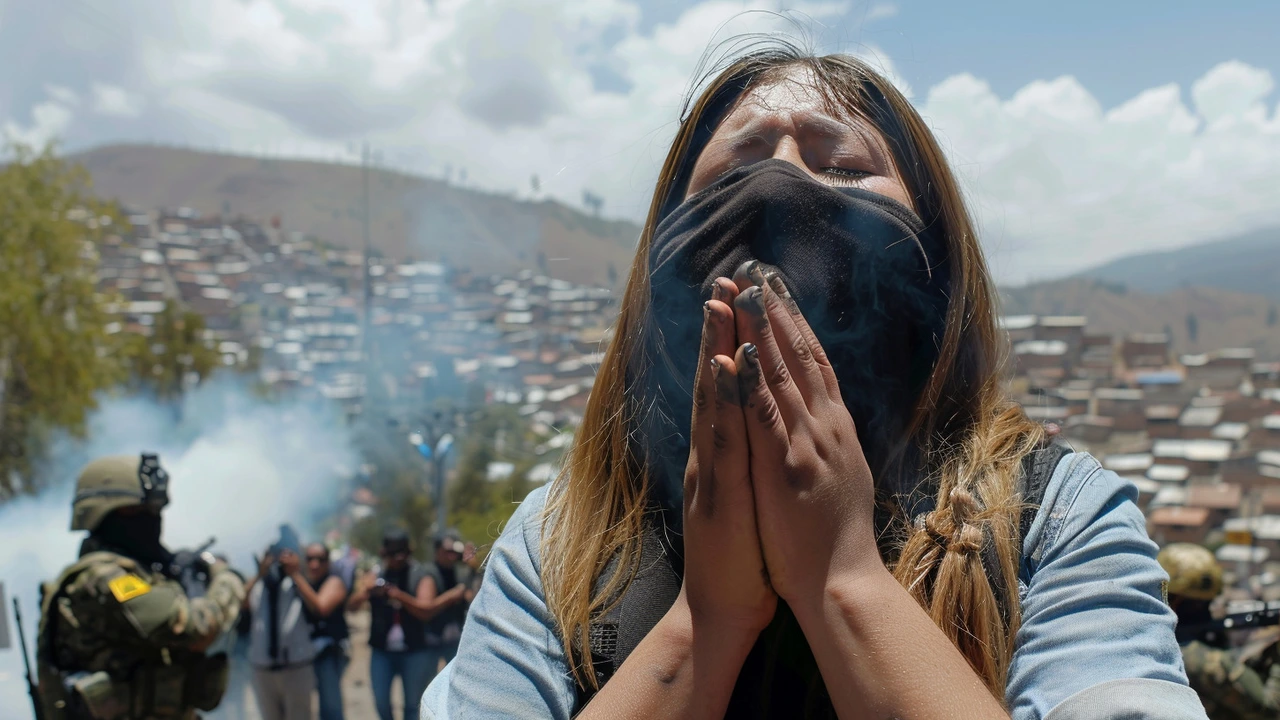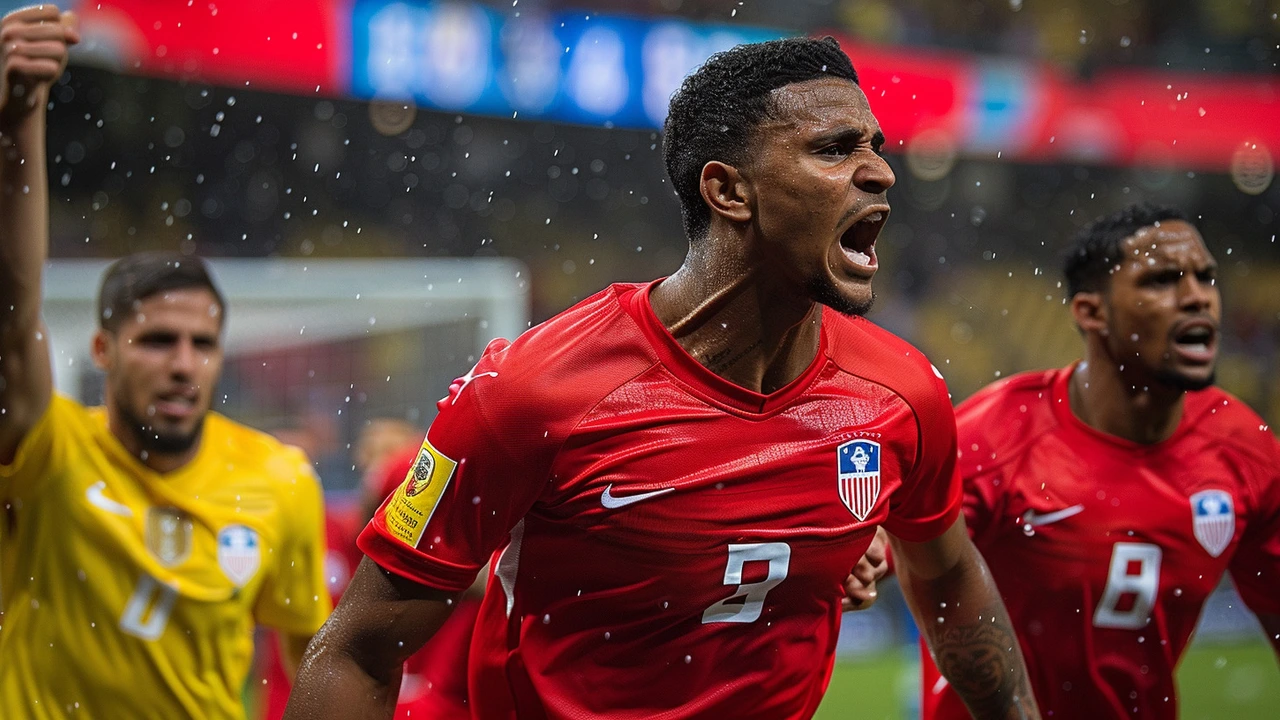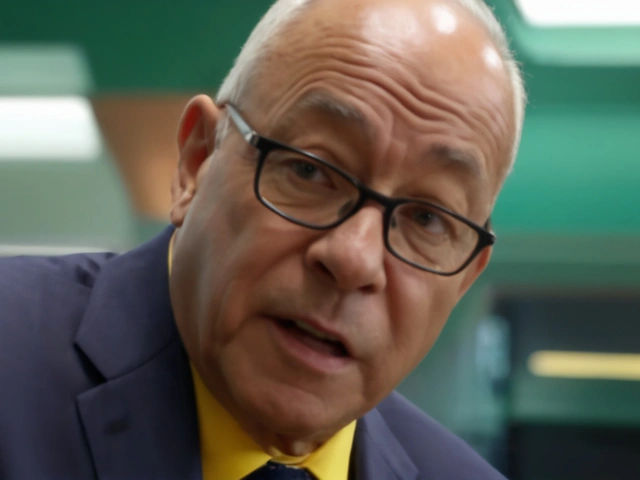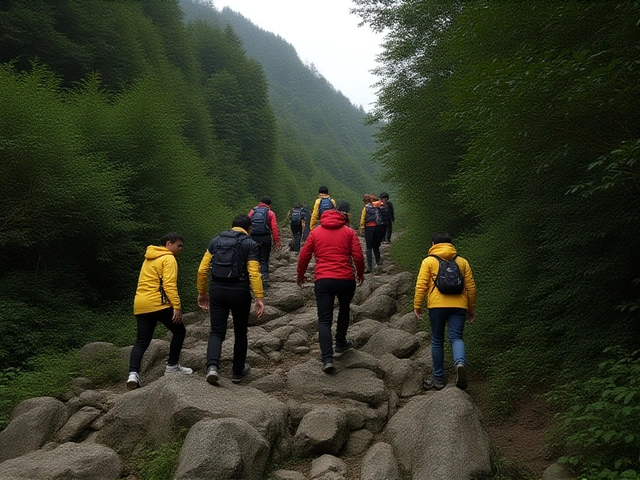Unfolding Tensions in Bolivia
In a rapidly developing situation that has gripped the attention of both domestic and international observers, Bolivia finds itself on the brink of a potential political crisis. President Luis Arce has made a fervent appeal to the nation's citizens to stand firm against what he described as a looming coup attempt, following the unexpected and alarming deployment of military forces around key government installations in La Paz.
Commencing at 2 p.m. local time, the sight of soldiers and armored vehicles surrounding the government buildings was enough to incite widespread alarm. Footage capturing the deployment shows armed soldiers positioning themselves strategically around the Murillo Plaza. This particular area holds significant political weight, hosting the national executive and legislative offices and is considered the epicenter of Bolivia's political power.
The Military Presence
The visual of armored vehicles making their way into the government palace added to the unrest, symbolizing a direct threat to the existing governmental power. This bold move has been interpreted by many as a preemptive step towards a coup, raising immediate and severe concerns not only within Bolivia's political circles but also among its citizenry and international partners.
Adding depth to the concerns, former President Evo Morales, who remains a pivotal figure in Bolivian politics, sounded the alarm about the potential coup. His warnings are not taken lightly, considering his own departure from office under similar circumstances in 2019 amid significant unrest and allegations of election fraud. Morales, who represents the Movement to Socialism (MAS) party, has urged social movements and the general public to rally in defense of democracy and the constitutional order.
Voices of Condemnation and Support
Vice President David Choquehuanca also voiced his staunch opposition to the unfolding events, labeling the military movements as an attempted coup against a democratically elected government. This perspective aligns with the broader national sentiment against disrupting constitutional governance.
Responses from the international community were swift and pointed. Paraguay's President Santiago Peña and the European Union both expressed their unequivocal support for stability and democratic processes in Bolivia. Additionally, the Organization of American States (OAS) Secretary-General Luis Almagro issued a firm condemnation of the military actions. Almagro underscored the indispensable role of the military in upholding the elected government's authority rather than undermining it.
The European Union echoed this sentiment. In a statement, the EU rejected any forms of disruption to Bolivia's constitutional order and reaffirmed its steadfast support for both the Bolivian government and its populace at large, stressing the importance of maintaining democratic integrity and peace.
Context and Historical Underpinnings
The current situation harks back to Bolivia's tumultuous recent history. In 2019, Evo Morales, after a contested election that saw allegations of fraud, stepped down in the wake of nationwide protests and military pressure. His resignation, which he described as a coup, paved the way for now-President Luis Arce, his ally from the MAS party. Morales' appeal for unity among social movements holds significant weight, given his enduring influence over Bolivia's political landscape.
As Bolivia contends with these developments, the atmosphere remains palpably tense. The specter of a coup, combined with a visibly assertive military presence, amplifies existing political instability and uncertainty.
Implications for Democracy and Governance
This situation poses significant questions about the robustness of Bolivia's democracy and the resilience of its governmental institutions. The ability of a democratically elected government to withstand such military pressures is a critical test for any nation's political framework. International observers and organizations are watching closely, recognizing that the outcome will set a precedent for how similar situations may be handled in the region.
In conclusion, Bolivia stands at a crucial juncture. President Luis Arce's calls for national unity against the threat of a coup, coupled with broad international condemnation of the military actions, highlight the critical nature of maintaining and safeguarding democratic norms and constitutional order. As events unfold, the importance of upholding these principles cannot be overstated, for they form the bedrock of any stable and just society.
The world is observing Bolivia, and the actions taken in the coming days will undoubtedly shape the nation's future trajectory, impacting its political landscape, governance, and its relationship with the global community.








20 Comments
Wow, what a tense situation in Bolivia! 😮 The president calling for unity is crucial right now. The military’s presence around La Paz is unsettling, but we’ve seen similar standoffs before. It’s important for citizens to stay calm and keep an eye on reliable news sources. 👀 International bodies like the OAS and EU stepping in is a good sign. Let’s hope dialogue wins over any forceful moves. Stay safe, everyone!
Oh, because nothing screams “stable democracy” like a convoy of tanks rolling up to the palace, right? The drama could give any telenovela a run for its money. It’s almost poetic how history repeats itself in Bolivia – like a broken record that just won’t quit. But hey, at least we get a front‑row seat to chaos. 🙄
This is a total mess.
The events unfolding in La Paz represent a stark reminder that the foundations of democracy are perpetually fragile.
When soldiers surround the very symbols of governance, the psychological impact on the populace extends far beyond the immediate visual intimidation.
One must consider the historical continuum that has plagued Bolivian politics, from the 2003 unrest to the 2019 crisis that saw President Morales step aside under duress.
In each of those moments, the military has acted as both arbiter and aggressor, blurring the line between protector and usurper.
The current deployment of armored vehicles around the Murillo Plaza is not merely a tactical maneuver; it is a calculated message aimed at sowing doubt among citizens and international observers alike.
President Luis Arce’s appeal for national unity, while rhetorically potent, must be matched by concrete mechanisms that prevent any rogue faction from hijacking state power.
International actors such as the European Union and the Organization of American States have voiced condemnation, yet their capacity to enforce compliance remains limited to diplomatic pressure.
The paradox lies in the military’s constitutional role: sworn to defend the republic, yet often wielded as a political lever by competing elites.
If the armed forces permit themselves to become a bargaining chip, the very notion of civilian supremacy erodes.
Moreover, the chilling effect on civil society cannot be understated; protests, unions, and indigenous groups may retreat into silence out of fear.
Silence, however, does not equate to consent, and the underlying tensions will simmer, possibly erupting in more severe confrontations later.
From a geopolitical perspective, neighboring countries watch closely, ready to intervene or capitalize on any power vacuum that may emerge.
The regional stability of South America depends on Bolivia maintaining its democratic trajectory, something that cannot be guaranteed by mere statements.
Economic considerations also play a role, as Bolivia’s natural gas exports and mining revenues are at stake when political uncertainty deters investment.
Therefore, the path forward requires a delicate balance of firm governmental resolve, transparent dialogue with military leadership, and sustained international oversight. Only through such a multifaceted approach can Bolivia hope to navigate these treacherous waters without slipping into a full‑blown coup.
Honestly, throwing around grandiose phrases won’t hide the fact that the elites are just playing chess with the lives of ordinary Bolivians. This theatrical nonsense is a distraction from the real power struggles.
One must, with all due decorum, acknowledge that the specter of a coup casts an ominous shadow upon the very soul of the nation. It is a tragedy of Shakespearean magnitude, yet we are forced to witness it in real time.
While the language may sound grand, the essential point is that civilians need clear, factual updates. Trustworthy information can help prevent panic and keep communities informed.
Got it.
It’s interesting how every crisis is painted as a binary battle between good and evil, ignoring the myriad shades of gray that truly drive politics.
!!! Absolutely!!! The world loves to simplify complex events!!! But the reality is far messier!!!
Yeah, because a couple of tanks automatically means the whole country is about to implode, right?
Enough with the drama! We need real solutions, not endless speculation. Let’s focus on safeguarding democratic institutions and supporting the Bolivian people directly.
In challenging times, it is vital to rally around shared values and encourage constructive dialogue. Together, we can foster resilience and uphold the principles of democracy.
Indeed, cultural context matters; South America’s history of coups teaches us that external support must be nuanced and respectful of local agency.
Stay hopeful, folks! 🌟 Even in darkest moments, people can come together and push back against authoritarian moves.
From a policy analysis standpoint, the current militarization event triggers a cascade of risk vectors that intersect governance stability, economic confidence, and regional security architectures. The feedback loops inherent in such a scenario amplify both short‑term volatility and long‑term institutional erosion, necessitating a multi‑layered response framework that integrates diplomatic engagement, capacity‑building for civil institutions, and real‑time intelligence sharing.
I hear the analysis, but the average citizen just wants peace, not endless jargon.
I totally get that – it’s overwhelming. Let’s keep an eye on reliable sources and hope for a peaceful resolution. 😊
Peace is what we all need right now and let’s hope dialogue wins
Absolutely! We must keep the conversation going!!!